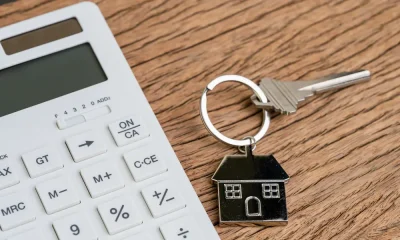Investment
Steps to Spotting Real Estate Opportunities for Investment

Spotting a good deal in real estate can only happen when you know what makes a property a great buy.
Getting unbelievable returns from property investment doesn’t happen overnight. While you don’t need a bachelor’s degree or any formal training to succeed in real estate investment, you must understand market trends.
To grasp the housing market well, you need to dedicate time to market research over months and years, not just a few days.
Investors with financial acumen—i.e., those who know the capitalization rate, how to measure cash flow, and other key metrics like the price-to-rent ratio—can act a lot quicker and more accurately than homebuyers who are winging it—i.e., hoping the purchase will work out for them.
Successful investors also use other core strategies, which we will examine in this property article and how they assist investors when choosing new rental properties for their portfolios.
Financial Position
A core component of knowing when you’re in a position to purchase a home for investment is your financial health.
What is your purchasing power? Your team of industry experts includes those in finance, i.e., the home loans sector. Knowing how much you can spend on a home or investment property (IP) requires in-depth knowledge of mortgages.
If you are considering purchasing your home or first investment property, start reading up on home loans. For example, CreditNinja Loans and Mortgages has a blog post on how a mortgage works—it explains the basics in layperson’s language, making it a good read for anyone keen to buy a home. We too have many articles on the topic.
Knowing that you need to provide a downpayment known as a deposit, seasoned investors will use the equity in their existing portfolio to secure a home loan offer that meets their requirements.
New investors need to use their savings, or if they have a PPOR (principal place of residence), i.e. their own home, they can leverage the equity in it. Home loan lenders are more than keen to walk you through the requirements and their application process.
It’s a Good Time to Buy an Investment Property
Did you know it’s always a good time to buy a home for investment? Your choice of property comes down to how it measures up to your list of expectations, which are your goals. To create and adhere to your goals, you need to:
- Do market research
- Analyze real estate financial metrics
- Work with your power team of experts (finance broker, property manager, valuer, inspector, accountant, legal advisor)
Understanding the Market
To secure a good deal, you must know more than just how much you can spend purchasing an IP.
Location
To find a great deal in real estate in a location that interests you, consider doing the following:
- Dedicate time to keeping up with local market conditions
- Compare recent sales
- Do neighborhood analysis
Analysing market conditions requires investigation into what’s happening locally.
- What’s the local economy like?
- Is there employment growth?
- Are there new houses and commercial building developments?
- Are there good amenities (schools, shops, transport)?
- Low or high crime rates?
Make notes on your findings regularly and compare them every six months. This way, you can gauge whether your desired location is desired and, if so, whether it will have homes that appreciate due to its popularity with homebuyers.
Financial Metrics
Seasoned investors love working the numbers, which are the financial metrics confirming whether and how much a property should be purchased.
Cash flow
Cash flow analysis is vital to ensuring rental income exceeds property expenses. The equation is straightforward: income minus expenses equals profit. Expenses include mortgage repayments, property maintenance, insurance, accounting fees, and taxes.
Capitalisation Rate
Although the cap rate doesn’t interest all property investors, it’s worth knowing how your investment compares to other strategies. Divide the net operating income by the property purchase price to calculate the cap rate.
Calculating Yield
Investors are very interested in understanding the yield, and there are calculators to work it out. An example is a home purchased for $225,000 with a weekly rent of $540. If you pay the property manager a week’s rent as a tenant sourcing fee and spend $500 a year on maintenance, then your gross yield is 12.48%
Other Strategies
Working with your power team of real estate industry experts opens you up to learning about potential great buying opportunities. For example, grow your network of local realtors or real estate agents and regularly contact them for market insights. Share what you know, too, as it is a two-way relationship.
Property inspectors and valuers are also worth contacting regularly.
Additionally, keep up with what’s happening in the economy and real estate industry online by reading blogs and participating in discussion forums.
Platforms like Zillow, or Redfin and local real estate portals like Australia’s realestate.com.au can help your market research with sales and market analysis data.






